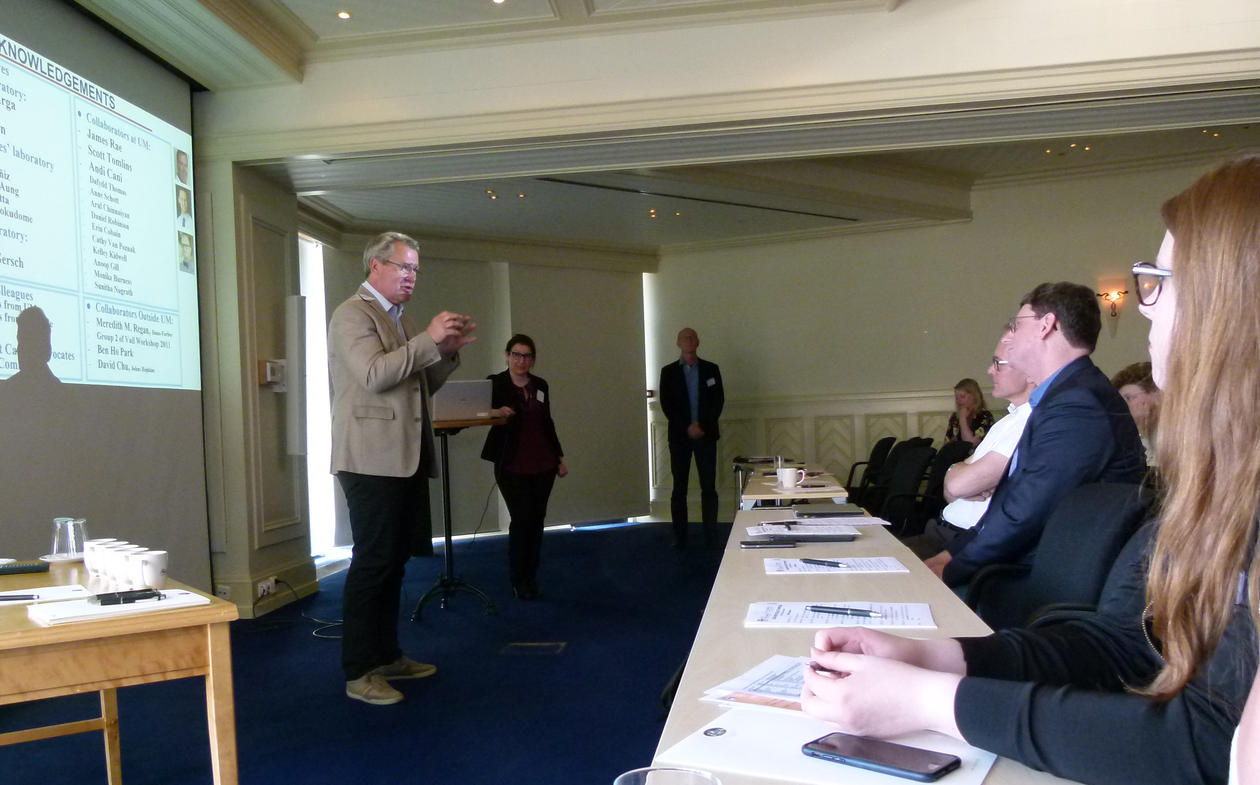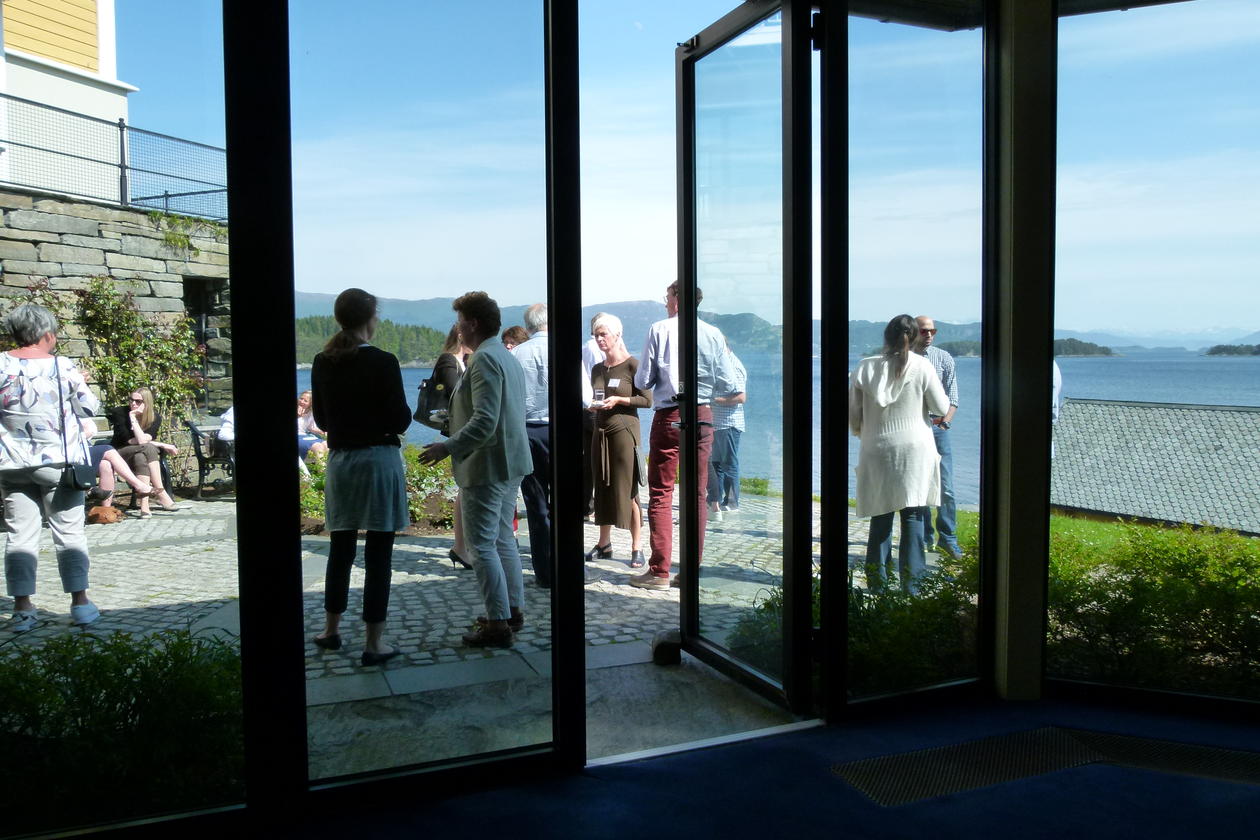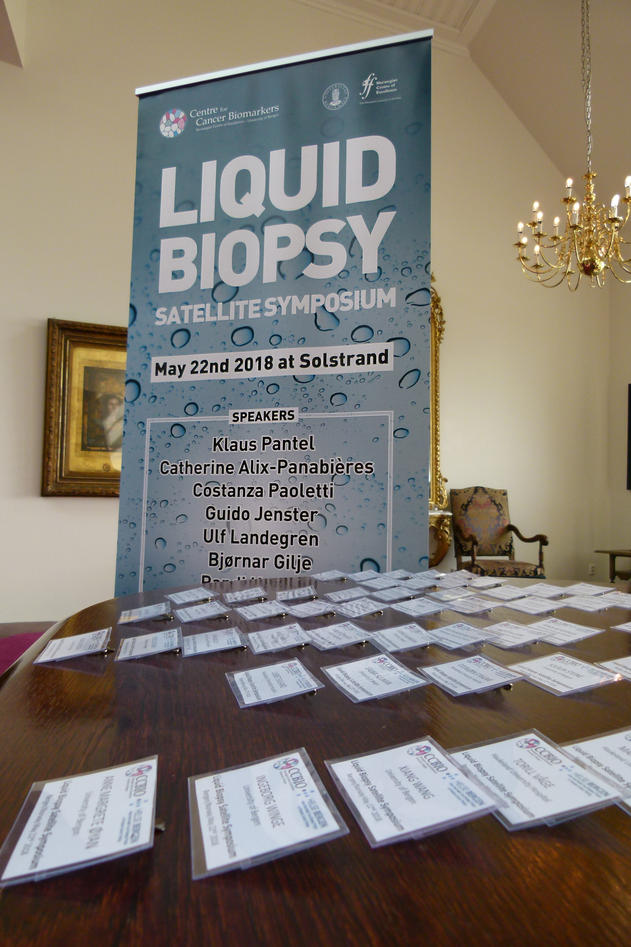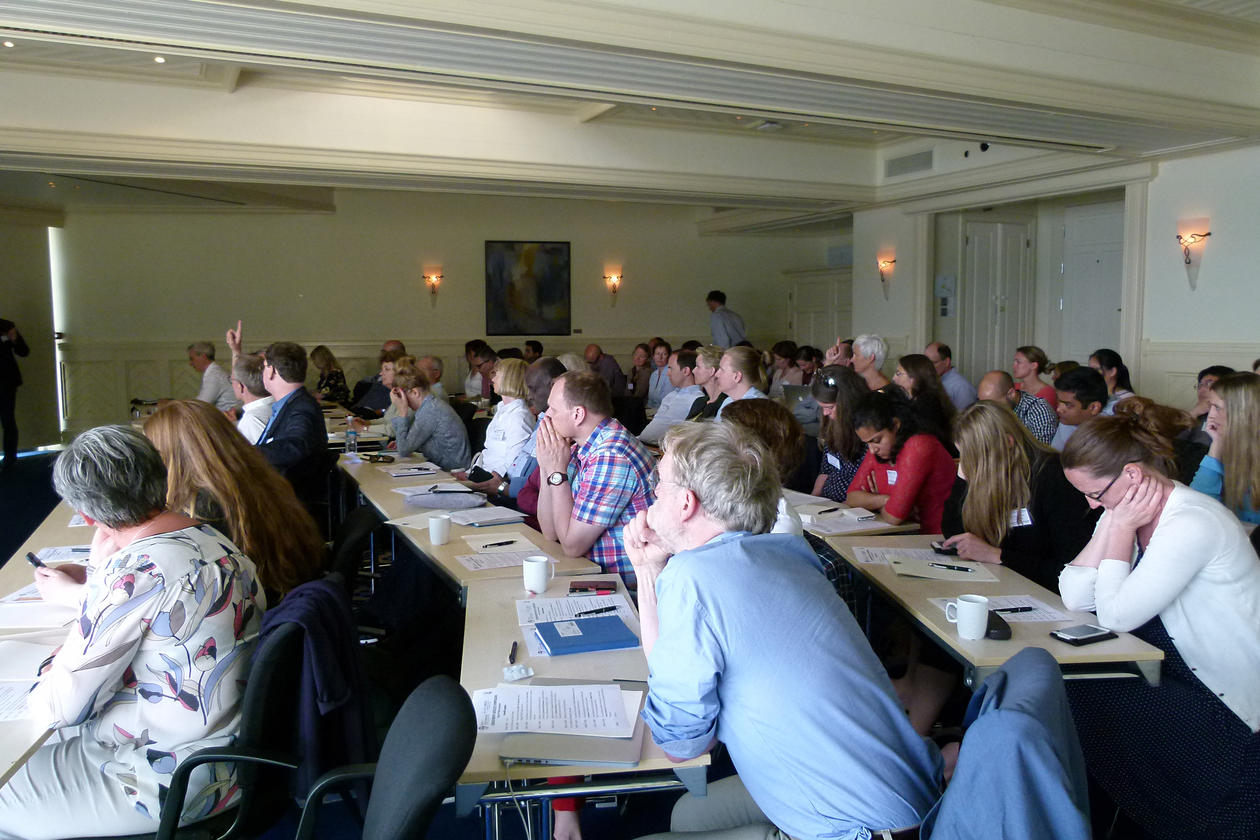Potential game changer in cancer testing
May and Solstrand showed off with blue skies and warm sunshine when CCBIO hosted the Liquid Biopsy Symposium May 22nd, a satellite symposium to the 6th CCBIO Annual Symposium 2018.

Main content
The Satellite Symposium was co-organized by the Centre for Cancer Biomarkers (CCBIO), the Bergen Health Strategic Program of Personalized Cancer Therapy (Liquid Biopsies), and Professor Klaus Pantel, University Klinik Hamburg. Professor Pantel is also an international affiliated investigator at CCBIO.
Hot topic
The term "Liquid Biopsy" was introduced in 2010 by Catherine Alix-Panabieres and Klaus Pantel, and today, circulating tumor cells (CTCs) and circulating DNA are still the mostly investigated liquid biopsy biomarkers (PubMed harbors today more than 20,000 reports on CTCs).
In recent years, there has been substantial progress in the assay development and clinical data demonstrating that liquid biopsy assays can contribute to early detection of cancer, monitoring of cancer therapies, identification of therapeutic targets and resistance mechanisms and detection of minimal residual disease in cancer patients.
Liquid biopsy and immunotherapy were the two hottest topics at the 2018 Annual AACR Meeting in Chicago in April. The AACR is globally the largest translational cancer society and the Annual meeting had more than 22,000 participants this year. Naturally, it was fitting that Liquid Biopsy was highlighted at also CCBIO's Solstrand event.
Clinical prospects
The definition of Liquid Biopsy is "Analysis of tumor cells (CTCs) or their products (e.g., DNA, miRNA, extracellular vesicles) in blood or other body fluids". In other words, looking for cancer cells circulating in the blood stream or other body fluids, and thereby possibly detect cancer at an early stage.
Professor Pantel explains why we need another option to tissue biopsy. "Tissue biopsies are invasive and some locations are difficult to access, such as lung or brain. In addition, single biopsy can miss relevant tumor clones due to intra-patient tumor heterogeneity," he says. He also explains that sequential tissue biopsies in individual patients for real-time monitoring of therapy response are less feasible in clinical practice.
The vision for liquid biopsy, on the other hand, is that we will achieve comprehensive and real-time tumor information simply by the analyses of blood or other body fluids.
Potential game changer
"So why has this not been clinically implemented all around yet?" we ask. "The key point for introduction into clinical practice is the proof of clinical utility, i.e., demonstrate that a change in medical practice, for example new treatment, based on the outcome of the liquid biopsy test leads to a benefit for the cancer patient. Clinical trials aiming at clinical utility are ongoing," Pantel exlains.
Professor Pantel underlines that liquid biopsy certainly might prove to be a game changer in cancer testing. "Blood-based analyses can provide more information for individuals at risk for cancer as well as cancer patients in all stages of their disease. In particular, improved cancer staging and monitoring the tumor evolution in individual patients by sequential blood analyses are one of the key applications," he says.
Collaboration with CCBIO
Pantel's team has an ongoing collaboration with CCBIO PI Karl-Henning Kalland and his team on CTC-Monitoring during Dendritic cell based Immunotherapy in Castration-resistant Prostate Cancer. Future collaborations will address the identification of therapeutic targets and resistance mechanism in prostate cancer and other solid tumors.
The Liquid Biopsy Satellite Symposium at Solstrand was also a collaboration with CCBIO. Professor Pantel sums up his view on the symposium. "This was an excellent meeting with internationally recognized experts on liquid biopsy research in cancer patients. The lectures were very informative and the topics were complimentary. Most importantly, there was a very lively discussion with the participants in the audience," he concludes.
You can see the scientific program of the symposium here. Speakers included Professor Klaus Pantel, Hamburg, Professor Catherine Alix-Panabières, Montpellier, Dr. Costanza Paoletti, Michigan, Professor Guido Jenster, Rotterdam, Professor Ulf Landegren, Uppsala, Dr. Bjørnar Gilje, Stavanger and Associate Professor Randi Hovland, Bergen.



